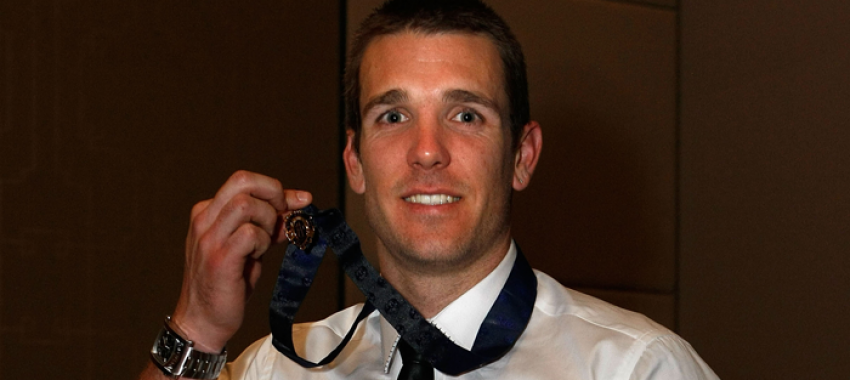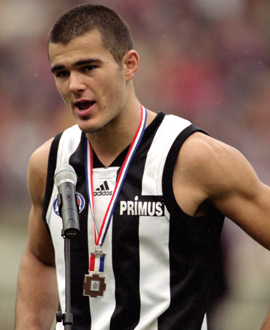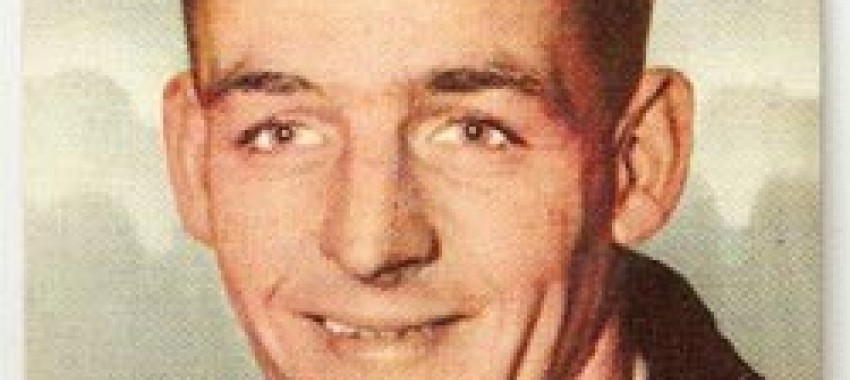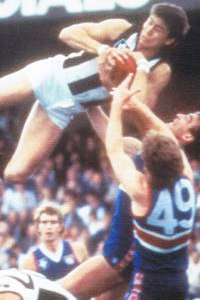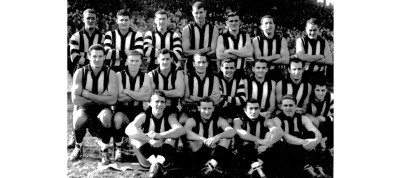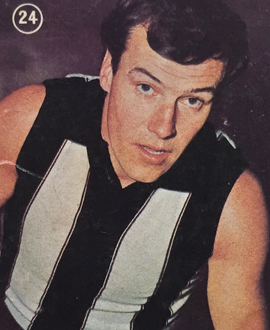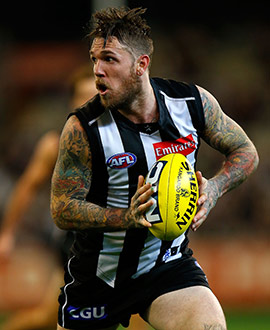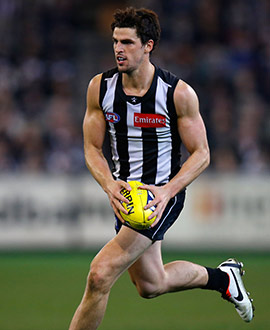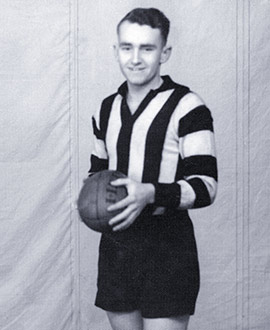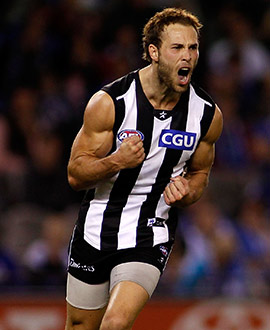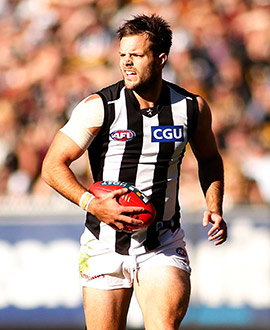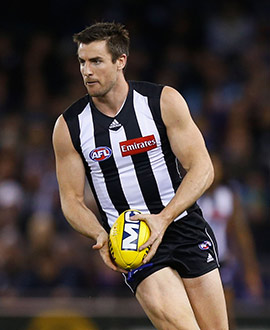By: Glenn McFarlane
Dane Swan's 2011 Brownlow Medal win - Collingwood's ninth victory in the award - stands out for a number of reasons.
For a start, Swan polled a record number of votes under the 3-2-1 system, winning a remarkable 32 votes - two more than that achieved by Des Fothergill (1940), Herbie Matthews (1940) and Robert Harvey (1998).
He also polled in 14 matches, which stands as equal to the record of Fothergill, Matthews, Harvey, and Jobe Watson (2012).
Highlighting a big season for Swan's club, that was also Collingwood's most productive Brownlow Medal fairing under the current system, with 16 players sharing 111 votes. This rated as the third highest of all-time, only marginally behind Essendon (116, in 2000 from 18 players) and Geelong (112, in 2008 from 14 players).
The other thing to stand out in Swan's win, by three votes to the ineligible Hawk Sam Mitchell and by six to St Kilda’s Nick Dal Santo, was his unusual mid-season break that was unique in Brownlow Medal history.
Incredibly, after having some issues in the first half of the year, Swan was told by Collingwood that it wanted him to rest from the Queen's Birthday clash with Melbourne, and head to Arizona for altitude training instead.
"I was a bit reluctant to go over there at first; we are paid to play footy and I hate missing games," Swan said after he had claimed the medal that many thought he might have won a year earlier.
"But they (the club) thought it would be best for me. (Then coach) Mick Malthouse and (then director of sports science) David Buttifant had the utmost faith in me.
"I had a tear in my quad, a sore shoulder and just one or two other niggles that were just annoying me. I couldn't get to top speed on the ground and that's 80 per cent of my game.
"It was just killing me. ’Butters' just said that I needed to get away and have a break. He swore that it would be better for me in the long run, and it was."
"It was just a great time for me to freshen up and I came back ready to go."
Swan spent 12 days training in Arizona in June with teammates Darren Jolly, Brent Macaffer and Nathan Brown.
Whether it had a placebo impact or not, Swan came back from his overseas stint as fresh as he had been all season and had the perfect run through the finals series.
Before his mid-season Arizona trip, the 27-year-old would poll 13 votes from his 10 games. After returning from the US, he would poll 21 more votes from his next 11 games.
Despite that, Swan doubted he could win the 2011 count after going into the previous year's medal as a short-priced favourite, only to have Chris Judd (the winner) and Gary Ablett poll more votes.
A year on, Swan would upstage Judd, who was the favourite, to clearly claim the medal.
As he accepted his medal, and had it placed around his neck by dual winner Judd, Swan said: "I certainly didn't come here with any pretention of winning, but I somehow managed to pull it off."
"Clearly, being favourite doesn't help," he said. "Last year was a bit of a strain in me, with all the pressure.
"Tonight I thought 'Pendles' (Scott Pendlebury) and 'Juddy' would go close, but somehow I managed to pinch a few votes off them."
Swan polled seven best afield votes, six second best-on-grounds and a single one-vote effort.
His 40 touches against North Melbourne in Round 2 earned him top marks, as did his 39 against the Kangaroos in the Round 15 second pairing of the teams.
He also polled three votes against Richmond (33 touches) in Round 4; Geelong (30) in Round 8; Essendon (45) in Round 19; St Kilda (34) in Round 21; and Brisbane Lions (33) in Round 22.
He did not score a vote in the final round, but two votes in the penultimate round against Fremantle (35 touches) was enough to take him out to a record 34 votes.
Through sheer weight of numbers - 760 touches (60 fewer than 2010) - Swan had been a worthy winner of the award, becoming the Magpies' first Brownlow Medal winner since Nathan Buckley in 2003.
